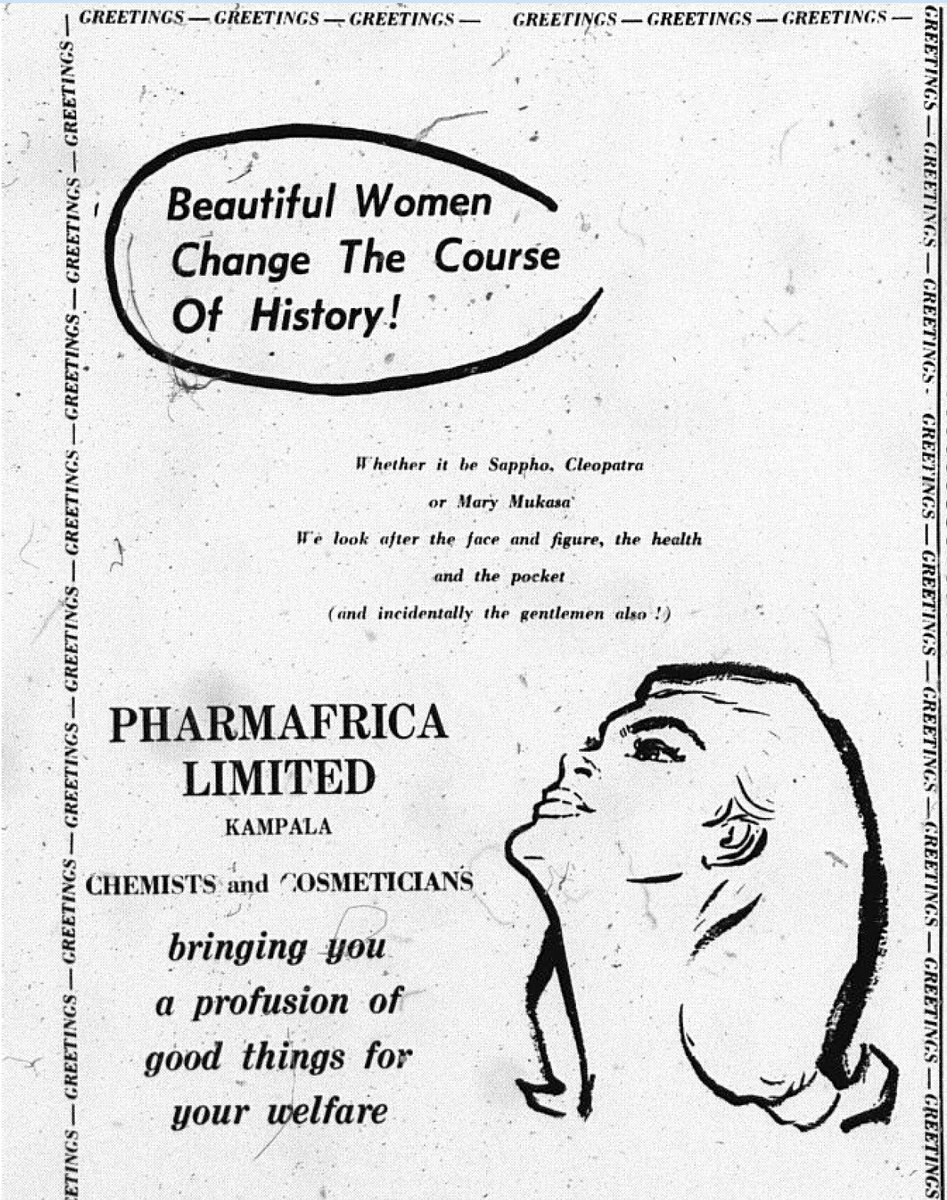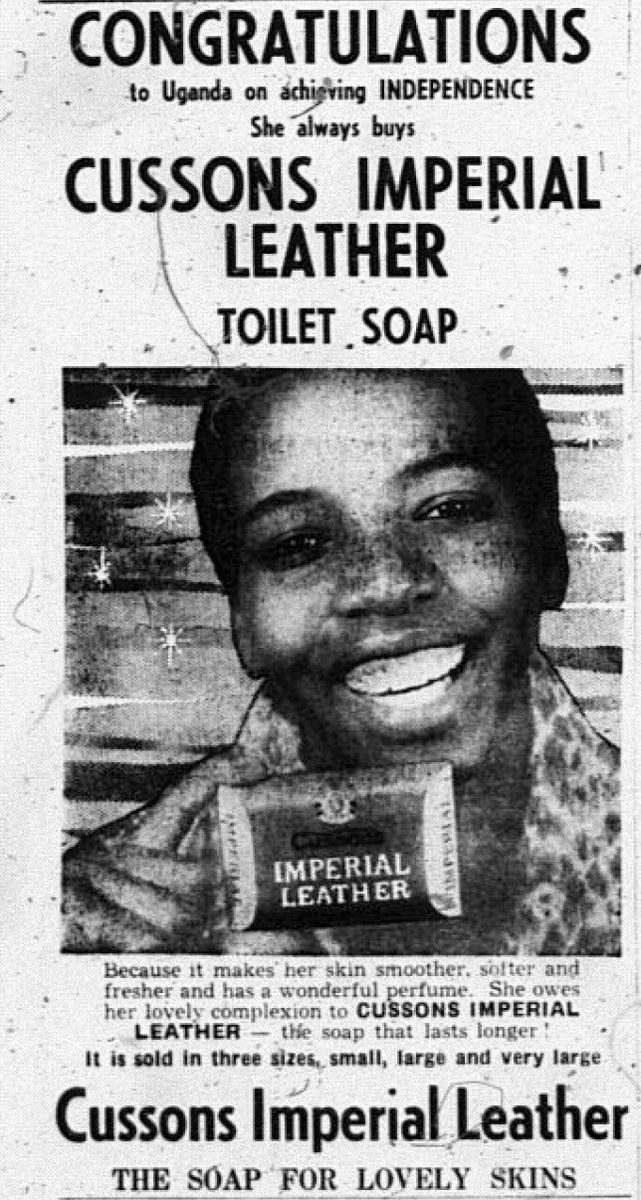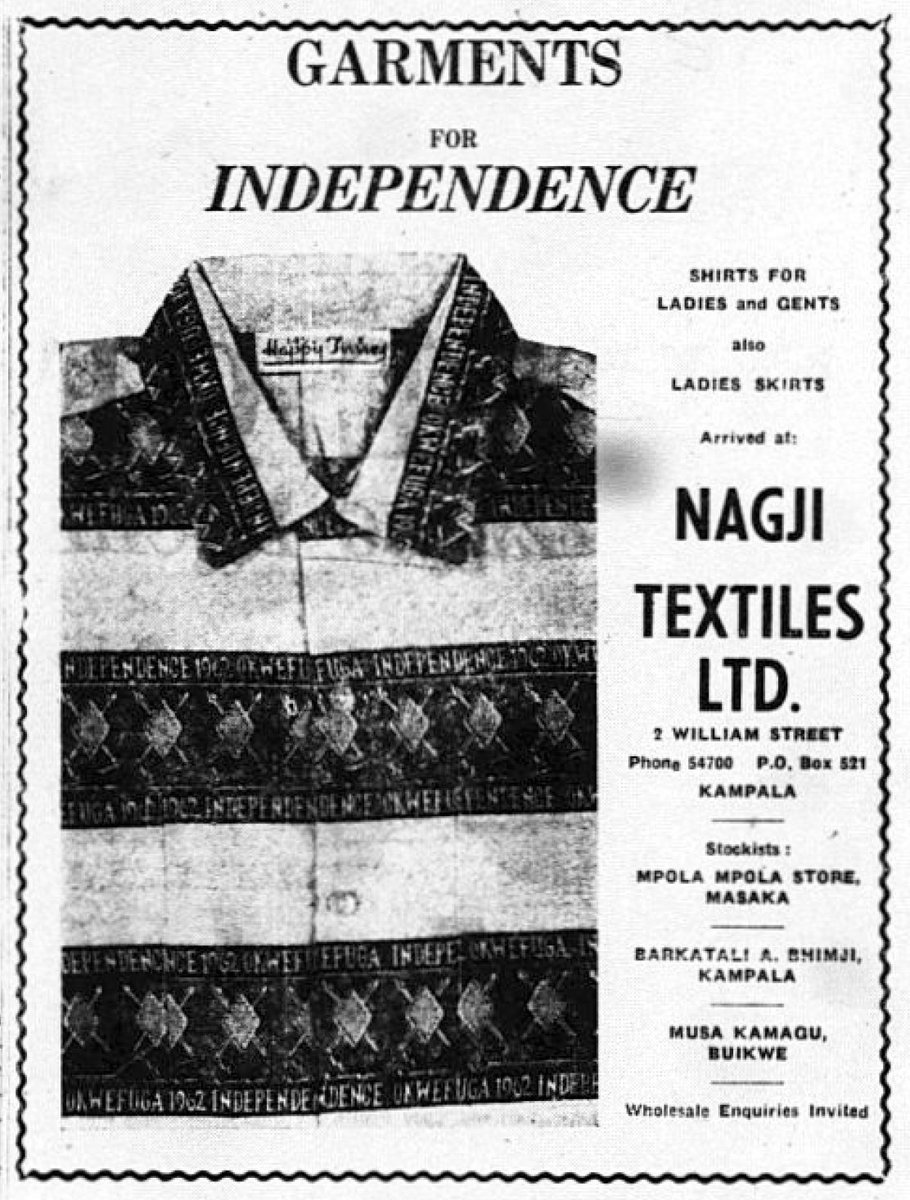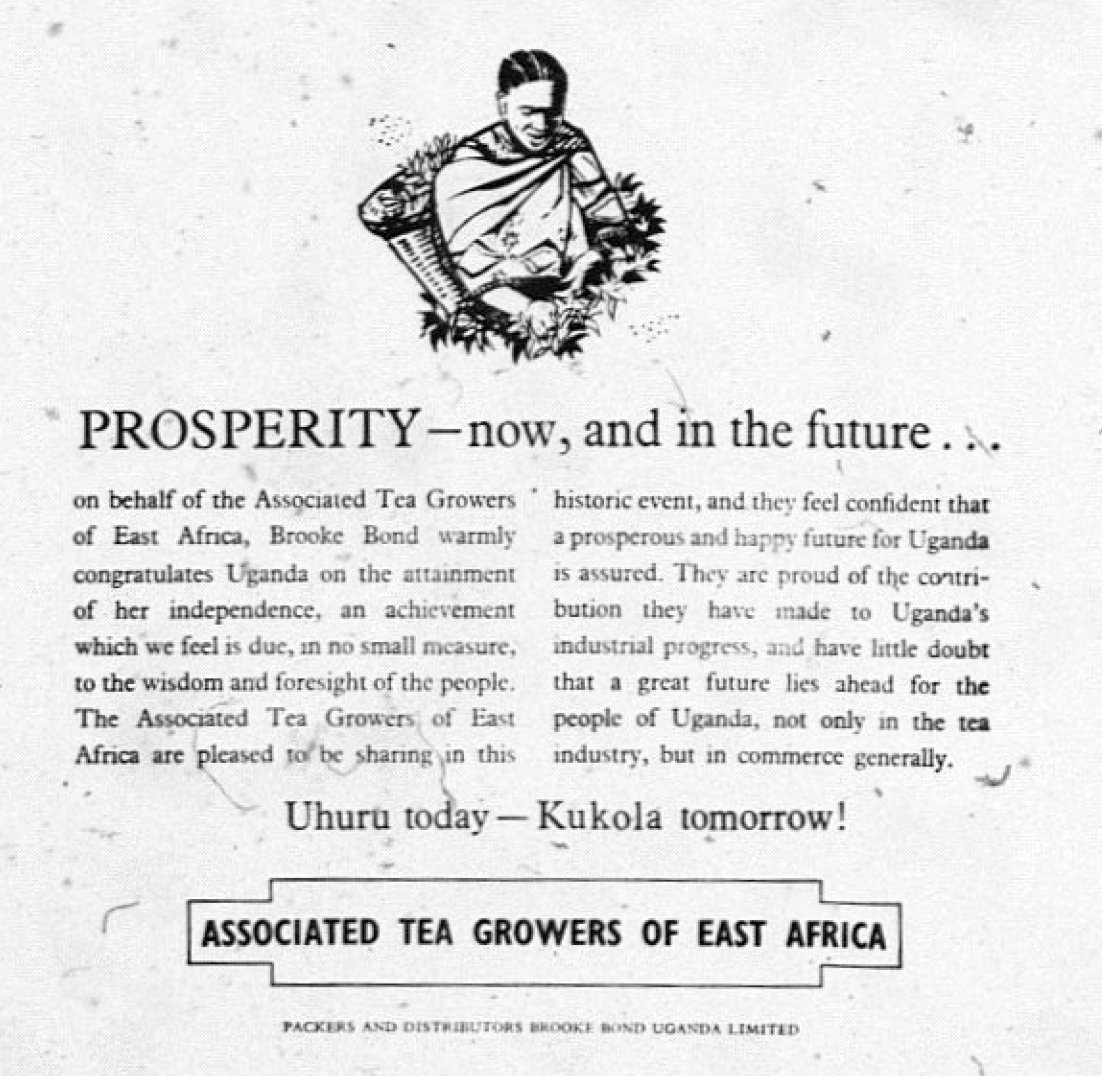
'"Beautiful Women Change the Course of History!": Advertising Independence in early 1960s Uganda.' In the weeks surrounding #UgandaAt59, several hundred national & international companies congratulated UG on its Independence in Uganda Argus. Here are 87 examples. 







The range of advertisements is incredibly diverse—from movie theatres to @Ford. Or from @BootsUK to @pepsi. I think there are many ways to read (or interpret) the images. We might, for instance, see them as illustrating the marketability of nationalism. 







We can surely see how the images build upon and complicate tropes re: race, gender, and class. Walter Rodney might use them to convincingly argue that they show how late colonial capital maintained its grip on African economies in the postcolony. 







But I think the advertisements, more than anything, illustrate the power of Ugandan entrepreneurs and consumers. What @KagutaMuseveni sought to accomplish this past week @expo2020dubai was not an aberration in UG's economic history. 







Ugandans have long been central actors in the creation and development of global economies. And this—as these images show—is worth celebrating! 







• • •
Missing some Tweet in this thread? You can try to
force a refresh






















































































